Welcome to my guide for newbie gardeners! Whether you’re just starting out or looking to improve your green thumb, this article will provide you with essential tips and practical advice to help you thrive as a beginner gardener in the U.S. Gardening is a rewarding and enjoyable hobby that allows you to connect with nature and create a beautiful outdoor space. With the right knowledge and a little bit of practice, you’ll be growing your own vibrant flowers, fresh herbs, and delicious vegetables in no time.
Key Takeaways:
- Choose a garden location that you will see regularly to ensure you spend time in it.
- Consider the amount of sunlight and choose plants that thrive in those conditions.
- Plan your garden near a water source to make watering easier.
- Invest in nutrient-rich soil for your garden beds or raised beds.
- Use containers for gardening when space is limited.
Choosing the Right Location for Your Garden
The first step in creating a successful garden is to choose the right location. Find a spot that you will see regularly so that you’re more likely to spend time in it, and consider the amount of sunlight the area receives to ensure you select plants that thrive in those conditions.
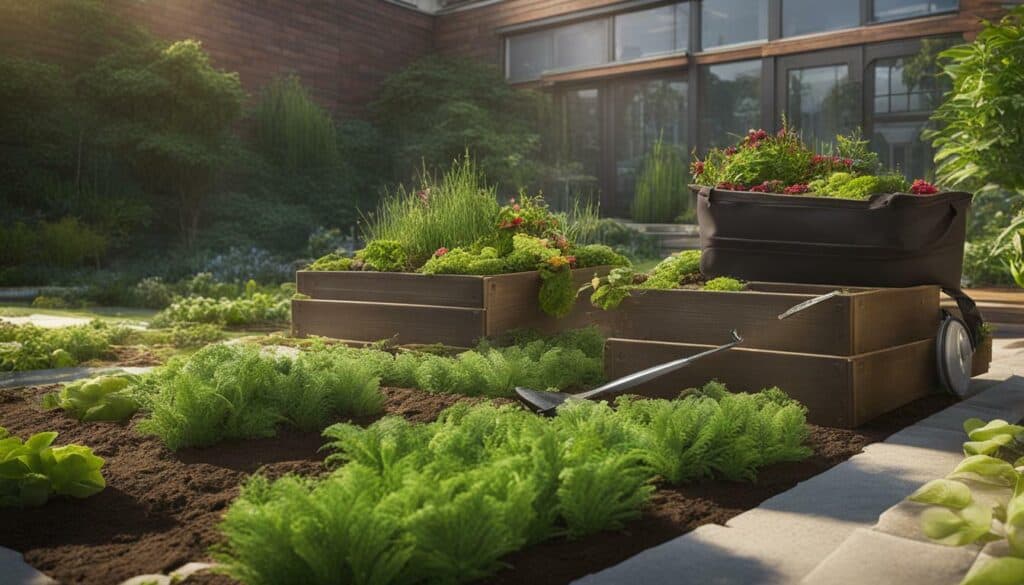
Once you’ve identified the perfect spot, it’s also important to plan your garden near a water source to make watering easier. This will save you time and effort, allowing you to enjoy your garden without constantly lugging around watering cans or hoses.
If you have limited space, don’t worry! You can still indulge in your gardening passion by using containers. Whether it’s a small balcony or a tiny backyard, containers offer a flexible and portable solution. You can grow a variety of plants, from herbs to flowers, in containers and move them around as needed.
| Gardening Essentials for Beginners | Starting a Garden |
|---|---|
| Invest in nutrient-rich soil for your garden beds or raised beds. This will provide a solid foundation for your plants to grow and thrive. | Start with a small garden bed and a few plants to avoid feeling overwhelmed. As a beginner, it’s better to focus on a few plants and take the time to learn their needs and care. |
| Select plants that match your growing conditions and hardiness zone. This will ensure that your plants have the best chance of success and will save you from unnecessary disappointment. | Consider purchasing seedlings instead of starting from seeds in your first year. Seedlings are already established plants, making them easier to care for and giving you a head start in your gardening journey. |
By following these tips and considering the right location, you’ll be well on your way to creating a thriving garden. Remember, gardening is a learning experience, so don’t be afraid to make mistakes and try new things. Enjoy the process and watch as your garden flourishes with your care and attention.
Preparing Your Garden Beds or Raised Beds
Before you start planting, it’s important to prepare your garden beds or raised beds. Investing in nutrient-rich soil will provide a healthy foundation for your plants, ensuring they receive the essential nutrients they need to thrive. If you have limited space, consider using containers for gardening. Containers offer versatility and can be placed on patios, balconies, or even indoors, allowing you to grow plants in small spaces. They also provide better control over soil quality and drainage.
When preparing your garden beds or raised beds, start by clearing any debris and weeds. Loosen the soil with a garden fork or tiller, breaking up clumps and removing rocks. This will create a loose, crumbly texture that allows plant roots to penetrate easily. Consider adding compost or enriched garden soil to provide additional nutrition for your plants. These organic materials improve soil structure and fertility, enhancing the overall health of your garden.
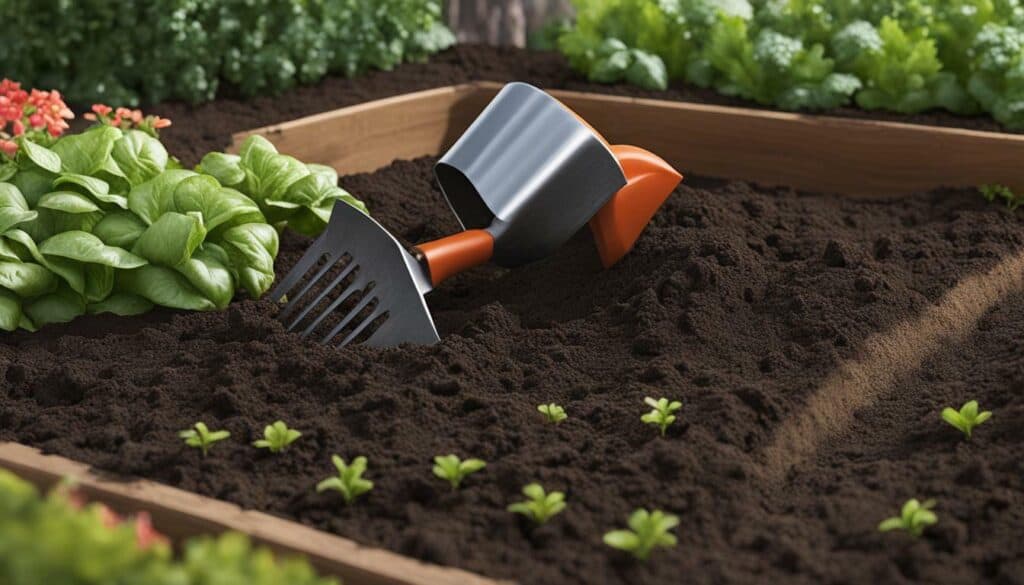
Tips for preparing your garden beds or raised beds:
- Apply a layer of mulch to keep plants moist, cool, and control weeds. Organic mulches, such as straw or wood chips, not only help retain moisture but also add nutrients to the soil as they break down.
- Plan the placement of your plants to ensure they have enough space, light, and nutrition. Consider the potential height and spread of mature plants when deciding where to plant each variety.
- Set up a watering plan using a garden hose with a spray nozzle or a soaker hose. Water deeply, allowing the water to reach the roots. Avoid overhead watering, as it can increase the risk of diseases.
- Use online resources and gardening communities to find information and advice. There are numerous websites, forums, and social media groups dedicated to helping beginner gardeners. Take advantage of these valuable resources to learn from experienced gardeners and connect with fellow enthusiasts.
- Choose plants that you love and that will be useful and productive for you. Consider your climate, available space, and personal preferences when selecting plants for your garden.
- Keep a garden journal to track the progress of your plants and lessons learned. Note down planting dates, fertilization schedules, pest problems, and anything else relevant to your garden. This will help you learn from your experiences and make improvements in future seasons.
By taking the time to properly prepare your garden beds or raised beds, you’ll provide your plants with a supportive environment for growth and ensure a rewarding gardening experience. Remember, gardening is a journey of learning and experimentation, so don’t be afraid to try new techniques and learn from both successes and challenges along the way.
Selecting the Right Plants for Your Garden
Choosing the right plants for your garden is crucial for their success. Make sure to select plants that match your growing conditions and hardiness zone, and be mindful of your local frost dates to avoid planting too early or too late in the season. By considering these factors, you can create an environment where your plants will thrive.
Matching Growing Conditions and Hardiness Zone
Every plant has specific requirements when it comes to sunlight, soil type, and moisture levels. Before making your plant selections, assess the conditions of your garden. Determine the amount of sunlight it receives throughout the day and identify any areas with shade. This information will help you choose plants that will thrive in your garden’s specific light conditions.
Additionally, consider the type of soil you have. Some plants prefer well-draining soil, while others thrive in moist conditions. Conduct a soil test to understand its composition and make any necessary amendments to provide the best growing environment for your plants.
Finally, find out the hardiness zone of your region. This classification system determines which plants are most likely to survive and thrive in your area’s climate. Knowing your hardiness zone allows you to select plants that are suitable for your specific weather patterns and temperature ranges.
Planting Timing and Frost Dates
Timing is crucial when it comes to planting your garden. Each plant has a preferred season for growth, and planting too early or too late can hinder their development. Consult a local gardening resource or use online tools to determine the average last frost date in your area. This information will help you plan your planting schedule and avoid any potential damage from late frosts.
| Plant | Sunlight Requirements | Soil Type | Watering Needs |
|---|---|---|---|
| Tomatoes | Full sun | Well-draining | Regular watering |
| Lettuce | Partial shade | Moist | Regular watering |
| Zinnias | Full sun | Well-draining | Regular watering |
By carefully selecting plants that match your garden’s growing conditions, considering the hardiness zone, and planning your planting schedule based on frost dates, you will set your garden up for success. With the right plants in place, you can create a beautiful and thriving garden that brings you joy all season long.
Maintaining Your Garden
Once your garden is planted, it’s important to maintain it properly. Apply a layer of mulch around each plant to reduce weed growth and retain moisture, and don’t forget to regularly feed your plants with high-quality plant food for optimal growth.
Mulching is a simple yet effective technique that can make a big difference in the health and appearance of your garden. By placing a layer of mulch around each plant, you create a barrier that helps suppress weeds, preventing them from competing with your plants for nutrients and sunlight. Mulch also helps to retain moisture in the soil, reducing the need for frequent watering and helping your plants thrive.
When choosing a mulch, opt for organic materials such as wood chips, straw, or shredded leaves. These materials break down over time, enriching the soil with organic matter. Spread a layer of mulch around each plant, making sure to leave a small gap around the base of the plant to allow for air circulation. This will help prevent the development of fungal diseases.
Feeding your plants with high-quality plant food is another essential aspect of garden maintenance. Look for a balanced fertilizer that provides nutrients such as nitrogen, phosphorus, and potassium. Follow the instructions on the fertilizer package for application rates and frequency. Regular feeding will ensure that your plants have the nutrients they need to grow and produce bountiful harvests.
Table 1: Essential Garden Maintenance Tasks
| Task | Frequency |
|---|---|
| Weeding | Regularly |
| Watering | As needed |
| Applying mulch | Annually or as needed |
| Feeding with plant food | According to package instructions |
| Monitoring for pests and diseases | Regularly |
| Pruning and trimming | As needed |
| Harvesting | When crops are ready |
By incorporating these basic gardening techniques into your garden maintenance routine, you’ll be well on your way to a thriving and beautiful garden. Remember to stay diligent in caring for your plants, and don’t hesitate to seek advice from online resources and gardening communities. Gardening is a continual learning process, and with each season, you’ll gain more knowledge and experience to enhance your gardening skills. Happy gardening!
Starting Small to Avoid Overwhelm
As a newbie gardener, it’s best to start small to avoid feeling overwhelmed. Begin with a small garden bed and only a few plants, allowing yourself to gradually learn and grow. Consider purchasing seedlings instead of starting from seeds in your first year for a more manageable start.
Gardening is an art that requires patience, time, and dedication. By starting small, you can focus your attention and efforts on a limited number of plants, giving them the care and attention they need to thrive. This approach also allows you to learn from any mistakes or challenges you encounter, without being overwhelmed by a large-scale garden.
One helpful tip is to plan the placement of your plants to ensure they have enough space, light, and nutrition. This will help prevent overcrowding, which can lead to competition for resources and hinder the growth of your plants. Consider using compost or enriched garden soil to provide adequate nutrition, and apply a layer of mulch to keep plants moist, cool, and control weeds.
| Starting Small Checklist: |
|---|
| 1. Choose a small garden bed or container |
| 2. Select a few plants that match your growing conditions |
| 3. Plan their placement for optimal growth |
| 4. Use compost or enriched garden soil for nutrition |
| 5. Apply a layer of mulch to retain moisture and control weeds |
| 6. Set up a watering plan for consistent hydration |
Starting Small Quote:
“Gardening is a journey, and it’s best to take it one step at a time. Starting small allows you to truly connect with your plants and learn from their needs. Enjoy the process, and remember that every leaf, flower, and harvest is a reward for your efforts.” – Gardening Enthusiast
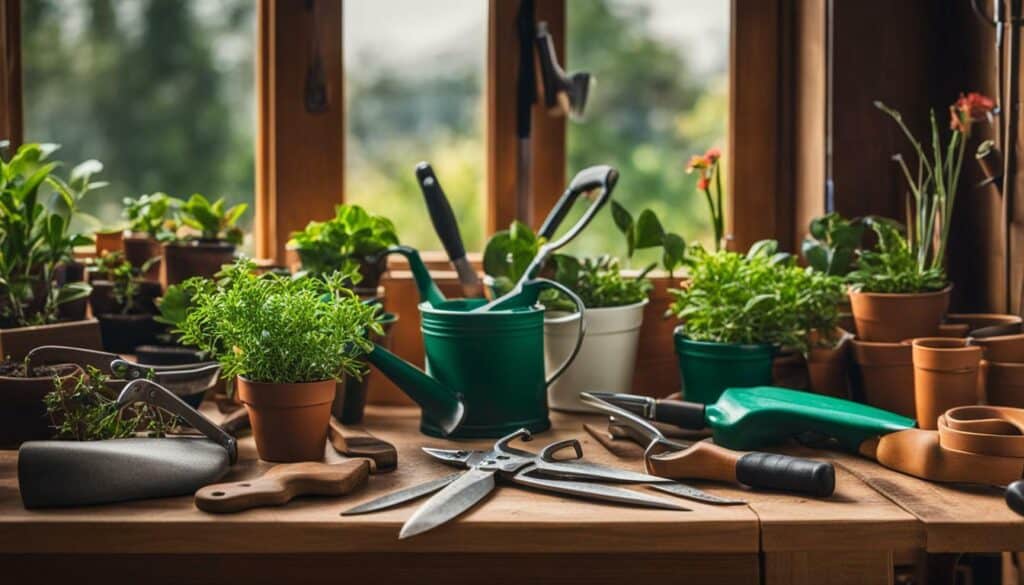
Remember, as a beginner gardener, it’s important to be patient with yourself and not get discouraged if things don’t go perfectly. Gardening is a learning experience, and each season will bring new lessons and opportunities for growth. Keep a garden journal to track the progress of your plants and jot down any observations or ideas you have along the way. This will not only serve as a valuable resource for future reference but also allow you to reflect on your achievements and improvement over time.
By starting small, being attentive to your plants’ needs, and utilizing resources and gardening communities, you’ll find yourself well on your way to becoming a confident and successful gardener. With love, care, and a willingness to learn, your garden will flourish and bring you joy for years to come.
Using Resources and Online Communities
In today’s digital age, there are endless resources and online communities available to support newbie gardeners like you. Take advantage of these valuable tools to find information, advice, and connect with fellow gardeners on your journey.
When starting out as a beginner gardener, it’s important to gather as much knowledge as possible. Online resources such as gardening blogs, websites, and forums can provide a wealth of information on topics ranging from plant care and gardening techniques to troubleshooting common problems. These resources often offer step-by-step guides, helpful tips, and even videos that can assist you in understanding the basics of gardening.
Additionally, online communities and forums provide a platform for connecting with experienced gardeners who are willing to share their knowledge and offer advice. Joining these communities allows you to ask questions, seek recommendations, and learn from the experiences of others. It’s a great way to find support and build connections with fellow gardening enthusiasts.
Remember, gardening is a continuous learning process. By utilizing the resources and online communities available to you, you can gain the confidence and knowledge needed to create a thriving garden. Connect with others who share your passion, seek advice when needed, and enjoy the journey of nurturing your plants.
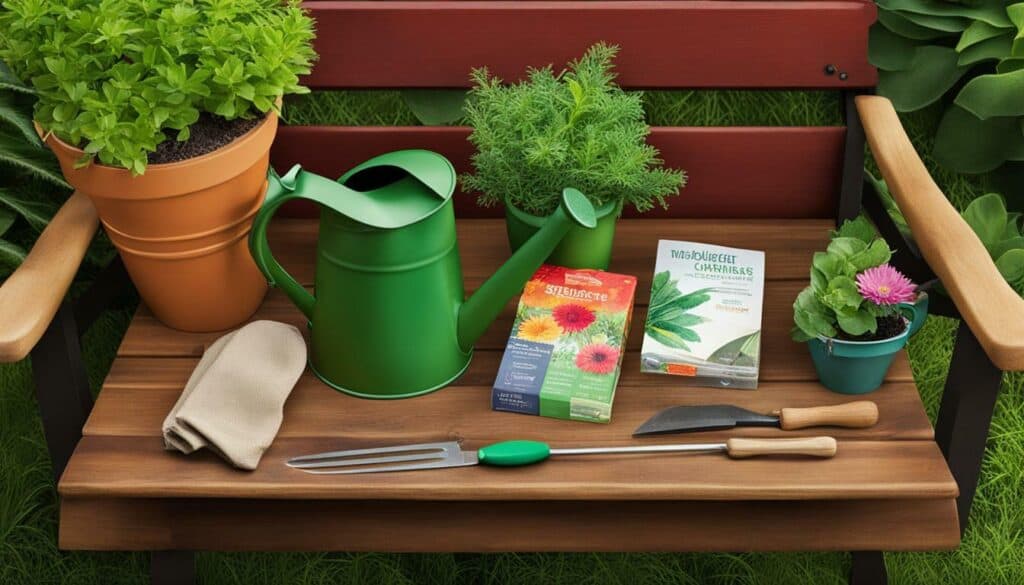
| Key Benefits of Online Resources and Communities for Beginner Gardeners |
|---|
| • Access to a wealth of gardening information and advice |
| • Step-by-step guides and video tutorials |
| • Assistance with troubleshooting common gardening problems |
| • Opportunities to connect with experienced gardeners |
| • Ability to ask questions and seek recommendations |
| • Support and encouragement from fellow gardening enthusiasts |
Gardening with Love and Learning
Gardening is a labor of love, so choose plants that you love and find useful in your garden. Additionally, keeping a garden journal is a great way to track the progress of your plants and learn valuable lessons along the way.
Maintaining a garden requires time and effort, but the rewards are worth it. To ensure a successful gardening experience, here are some essential tips for beginners:
- Start with a small garden bed and a few plants to avoid feeling overwhelmed. This will allow you to focus on the care and needs of each plant individually.
- Consider purchasing seedlings instead of starting from seeds in your first year. It will give you a head start and increase the chances of success.
- Plan the placement of your plants to ensure they have enough space, light, and nutrition. This will promote healthy growth and prevent overcrowding.
- Invest in nutrient-rich soil for your garden beds or raised beds. This will provide the necessary nutrients for your plants to thrive.
- Apply a layer of mulch around each plant to reduce weed growth and retain moisture. Mulching also helps regulate soil temperature and conserves water.
- Regularly feed your plants with high-quality plant food for optimal growth. Follow the instructions on the fertilizer packaging to avoid overfeeding.
By following these tips, you’ll be well on your way to creating a beautiful and thriving garden. Remember, gardening is a learning experience, so don’t be discouraged by setbacks. Embrace the process, experiment, and enjoy the journey!
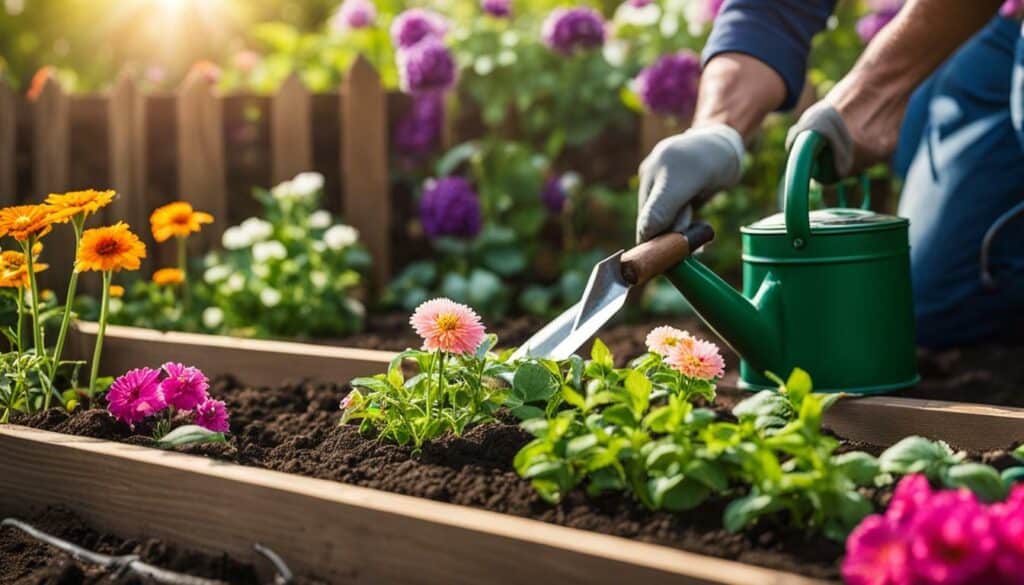
| Beginner Gardening Tips | Gardening Essentials for Beginners |
|---|---|
| Start with a small garden bed | Invest in nutrient-rich soil |
| Choose plants that match your growing conditions | Apply a layer of mulch around each plant |
| Regularly feed your plants with high-quality plant food | Consider purchasing seedlings |
Conclusion
Congratulations on embarking on your gardening journey! Remember, gardening is a learning experience, so take it one step at a time and don’t get discouraged. With these tips and practical advice, you’ll be well on your way to becoming a successful newbie gardener in the U.S.
Choosing the right location for your garden is key. Make sure it’s a place you’ll see regularly, so you’ll be inspired to spend time in it. Consider the amount of sunlight your garden will receive and choose plants that thrive in those conditions. Plan your garden near a water source to make watering easier.
Preparing your garden beds or raised beds is essential for healthy plant growth. Invest in nutrient-rich soil to give your plants the best start. If space is limited, use containers for gardening. They are versatile and can be placed in any available space.
When selecting plants, match them with your growing conditions and hardiness zone. Knowing your frost dates will help you avoid planting too early or late in the season. To maintain your garden, apply a layer of mulch around each plant to reduce weed growth and retain moisture. Regularly feed your plants with high-quality plant food for optimal growth.
Starting small is a smart choice for newbie gardeners. Begin with a small garden bed and a few plants to avoid feeling overwhelmed. Consider purchasing seedlings instead of starting from seeds in your first year. Plan the placement of your plants to ensure they have enough space, light, and nutrition for healthy growth.
Utilize online resources and gardening communities for information and advice. They can be a valuable source of knowledge and inspiration. Choose plants that you love and will be useful and productive for you. Keep a garden journal to track the progress of your plants and learn from your experiences.
Remember, gardening is a journey filled with joy, learning, and growth. Take it one step at a time, and enjoy the process. Happy gardening!
What Are Some Essential Tips for Newbie Gardeners that They Should Note?
Newbie gardeners can greatly enhance their gardening skills by following some essential gardening tips. Firstly, understanding the importance of proper soil preparation, watering, and sunlight is vital. Secondly, investing in quality tools and equipment is a wise decision. Lastly, regular monitoring and pest control, along with seeking advice from experienced gardeners, can ensure healthy and thriving plants. Remember, these essential gardening tips can lay a robust foundation for your gardening journey.
FAQ
Q: Where should I locate my garden?
A: Choose a location for your garden that you will see regularly to ensure you spend time in it.
Q: How do I choose plants for my garden?
A: Consider the amount of sunlight your garden will receive and choose plants that thrive in those conditions.
Q: Should I plan my garden near a water source?
A: Yes, it is recommended to plan your garden near a water source to make watering easier.
Q: What kind of soil should I use for my garden beds?
A: Invest in nutrient-rich soil for your garden beds or raised beds.
Q: What should I do if I have limited space for gardening?
A: Use containers for gardening when space is limited.
Q: How do I know which plants to choose?
A: Select plants that match your growing conditions and hardiness zone.
Q: How do I avoid planting too early or late in the season?
A: Know your frost dates to avoid planting too early or late in the season.
Q: How can I reduce weed growth and retain moisture in my garden?
A: Apply a layer of mulch around each plant to reduce weed growth and retain moisture.
Q: How often should I feed my plants?
A: Regularly feed your plants with high-quality plant food for optimal growth.
Q: Should I start with a large garden or a small one?
A: Start with a small garden bed and a few plants to avoid feeling overwhelmed.
Q: Should I start with seeds or seedlings?
A: Consider purchasing seedlings instead of starting from seeds in your first year.
Q: How do I plan the placement of my plants?
A: Plan the placement of your plants to ensure they have enough space, light, and nutrition.
Q: How can I provide adequate nutrition for my plants?
A: Use compost or enriched garden soil to provide adequate nutrition for your plants.
Q: How can I keep my plants moist and control weeds?
A: Apply a layer of mulch to keep plants moist, cool, and control weeds.
Q: How should I water my garden?
A: Set up a watering plan using a garden hose with a spray nozzle or a soaker hose.
Q: Where can I find information and advice for gardening?
A: Use online resources and gardening communities to find information and advice.
Q: How do I choose the right plants for me?
A: Choose plants that you love and will be useful and productive for you.
Q: Should I keep track of my gardening progress?
A: Keep a garden journal to track the progress of your plants and lessons learned.
Q: What should I remember as a newbie gardener?
A: Take it one step at a time and don’t get discouraged. Gardening is a learning experience.
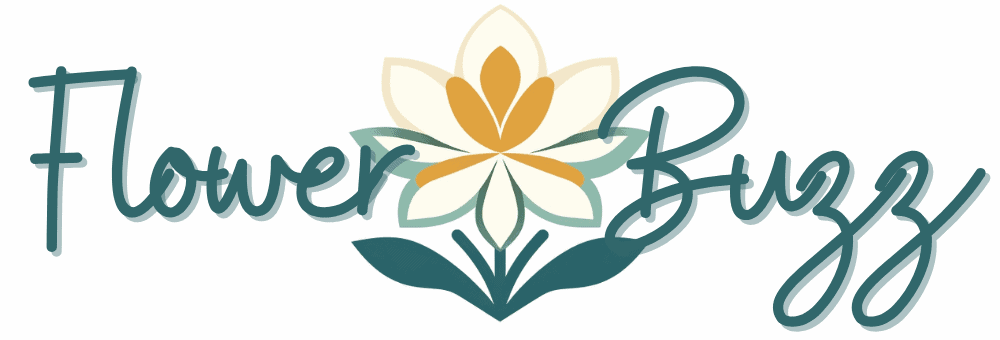
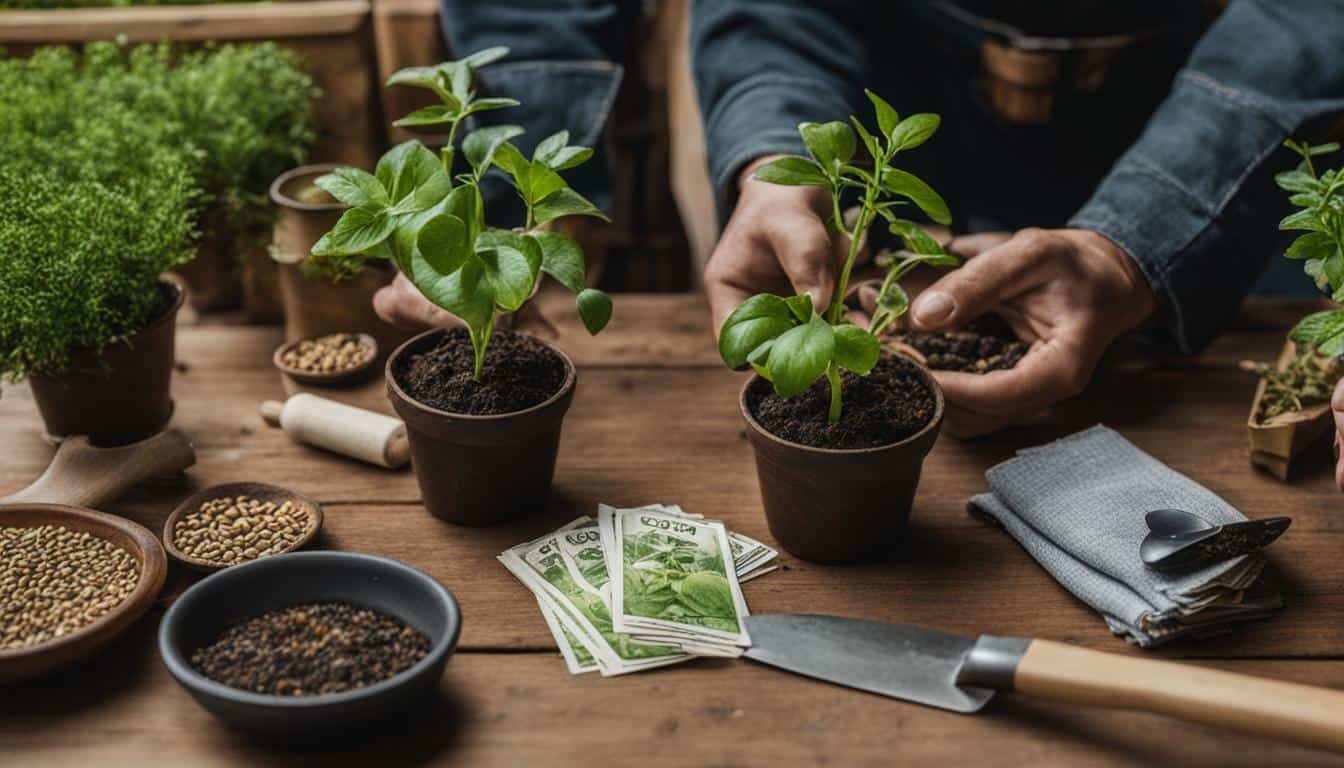
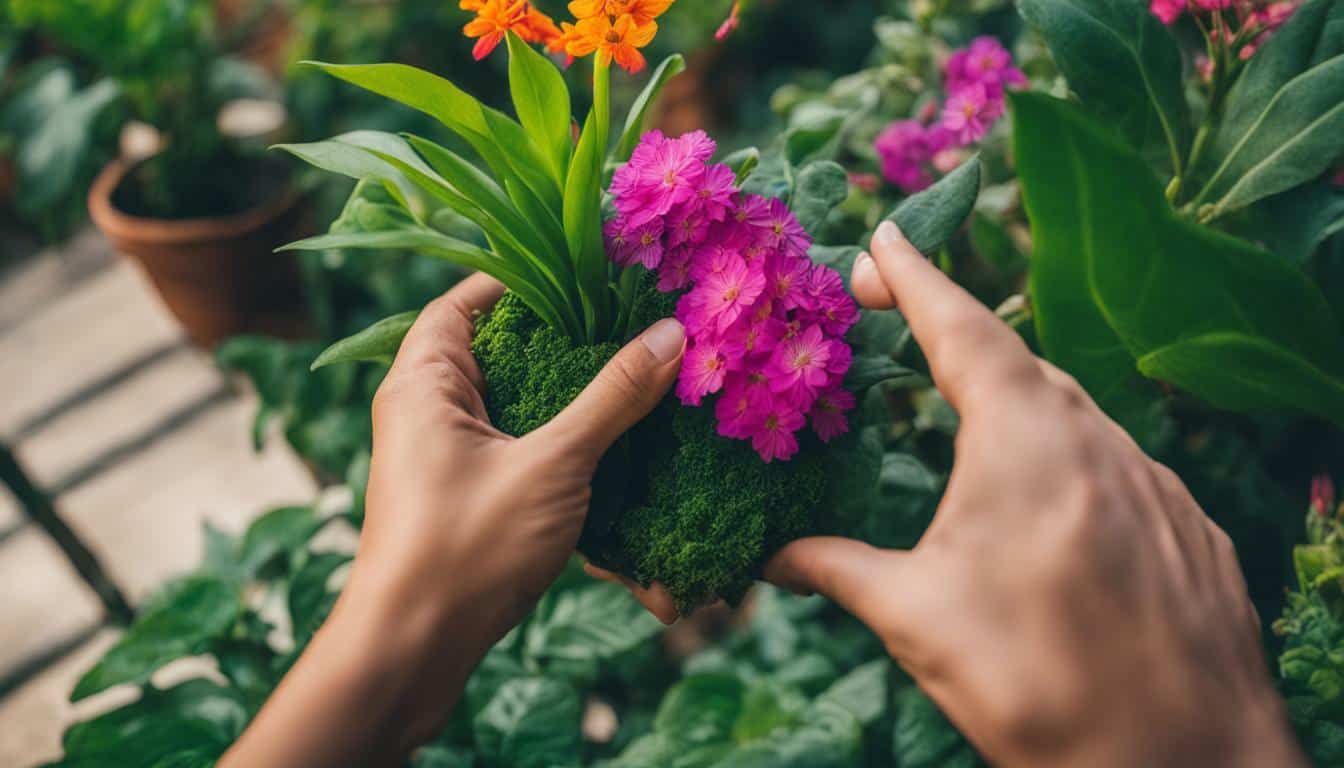
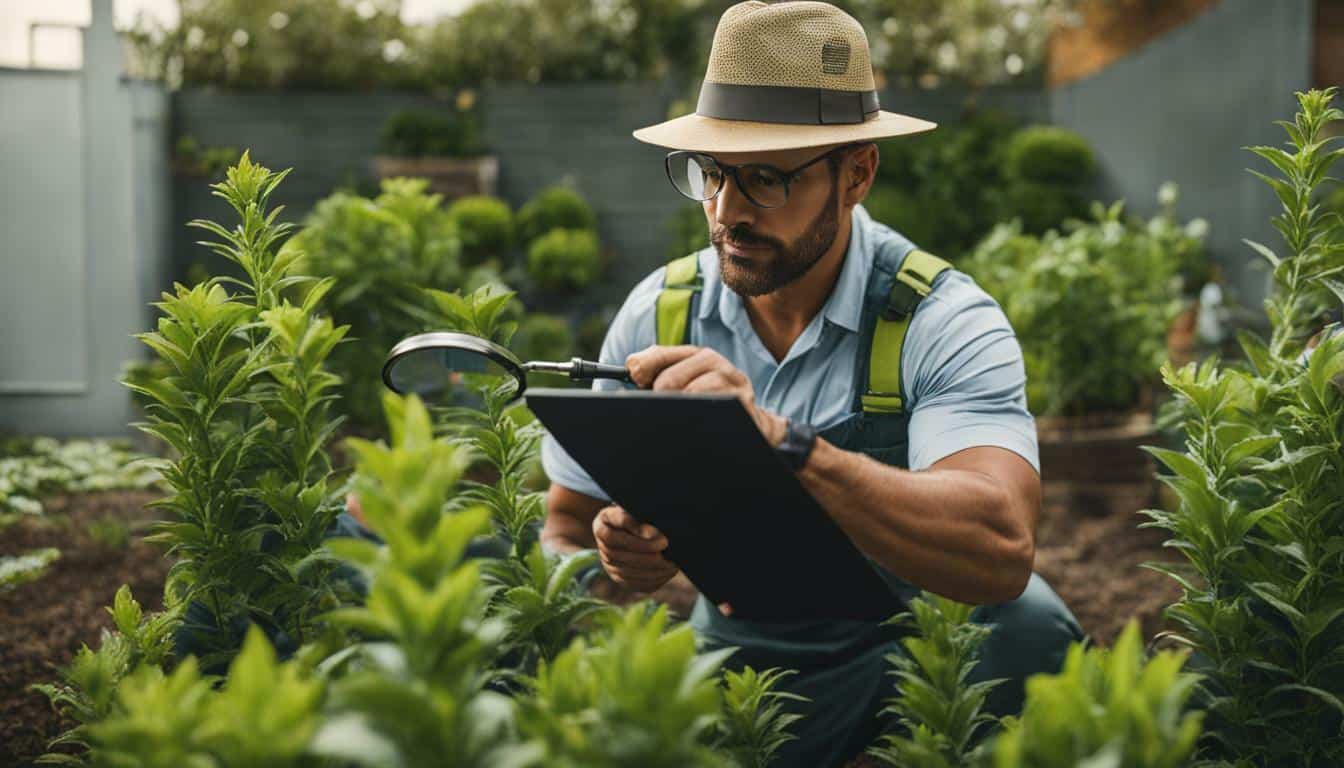

Leave a Reply